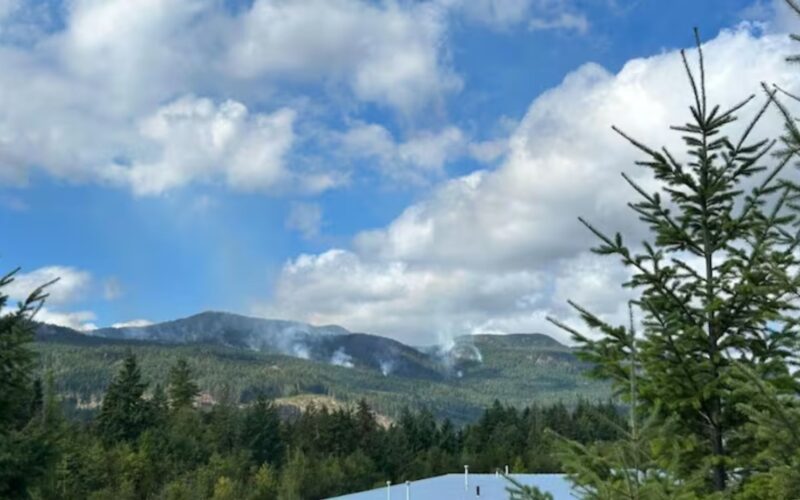British Columbia (Richa Walia): Light rainfall and increased humidity have offered a short-lived break in British Columbia’s battle against wildfires, but provincial officials warn that more difficult days are likely ahead as temperatures are expected to rise again.
According to Cliff Chapman, Director of Wildfire Operations at the B.C. Wildfire Service (BCWS), while the recent change in weather has helped slow fire activity in some areas, it has not been enough to significantly alter the overall wildfire risk.
“The southern half of B.C. is expected to heat up again starting this weekend,” Chapman said during a media briefing on Wednesday. “There’s really no region in the province that is completely free from wildfire danger, not this year—and honestly, not any year.”
Chapman pointed to northeastern B.C. as a particularly vulnerable region, having received little to no rainfall while other parts of the province experienced modest showers. He stressed that even where precipitation occurred, it only offered temporary localised relief.
“These conditions allow our crews to get closer to the fire’s edge and make tactical progress,” he explained. “But they don’t eliminate the overall threat for the remainder of the season.”
Recent years have lacked the large, sustained rainfalls that typically help end wildfire seasons, leaving fire crews to depend more heavily on seasonal changes from summer into fall.
In a related update, fire information officer Madison Dahl emphasized that British Columbia remains under a significant drought, even with rainfall on the radar. Speaking about the Wesley Ridge fire—one of the largest active blazes—Dahl noted that fire activity was “minimal” overnight but cautioned that conditions remain extremely dry.
As of Thursday, the Wesley Ridge fire had grown to 571 hectares and was primarily burning in rugged, backcountry terrain north of Cameron Lake. It remains the source of the majority of current evacuation alerts and orders across the province.
Currently, nearly 110 wildfires are active in B.C., many of which were sparked by a surge of lightning strikes amid hot, dry conditions last week. Despite the severity of the situation, some progress has been made: more than 160 fires have been fully extinguished in the past seven days.
Evacuation efforts are also seeing some positive developments. Over 100 residents near Cameron Lake on Vancouver Island have been allowed to return home as evacuation orders were downgraded to alerts. A similar order in the Lytton area was lifted after the Cantilever Bar fire was reclassified as “being held.”
Evacuation alerts issued by multiple authorities—including the Lytton First Nation, Thompson-Nicola Regional District, and Siska First Nation—have also been withdrawn. However, an alert remains in place from the Skuppah Indian Band, with no update yet on its current status.
Despite recent violations of fire bans resulting in nearly $30,000 in fines issued by the B.C. Conservation Officer Service over the long weekend, officials are urging continued public cooperation as they brace for worsening fire conditions.
Chapman concluded with a sobering reminder: “While we may see a few days of calm, the broader wildfire threat remains very much alive.”

